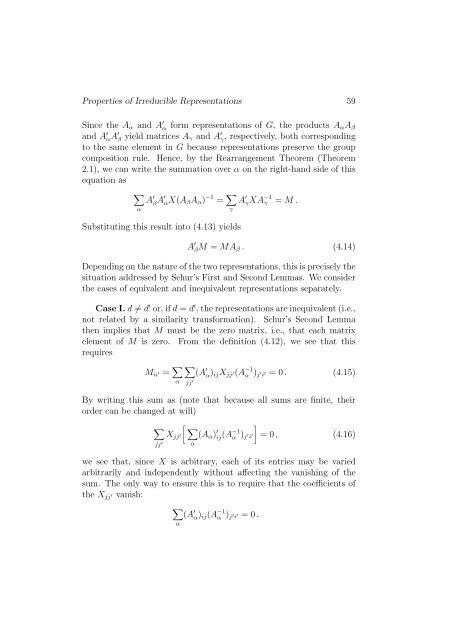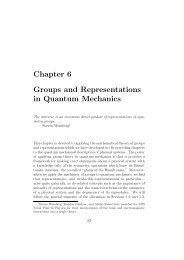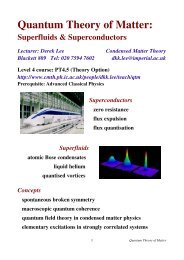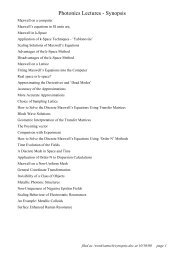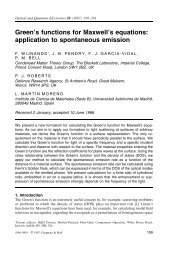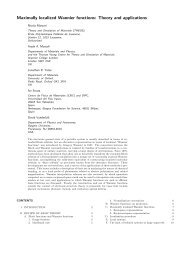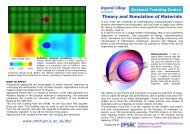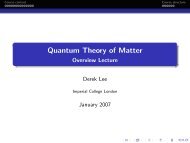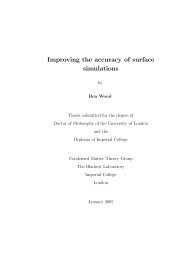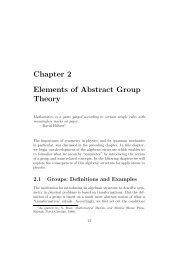Chapter 4 Properties of Irreducible Representations
Chapter 4 Properties of Irreducible Representations
Chapter 4 Properties of Irreducible Representations
You also want an ePaper? Increase the reach of your titles
YUMPU automatically turns print PDFs into web optimized ePapers that Google loves.
<strong>Properties</strong> <strong>of</strong> <strong>Irreducible</strong> <strong>Representations</strong> 59<br />
Since the A α and A ′ α form representations <strong>of</strong> G, the products A α A β<br />
and A ′ αA ′ β yield matrices A γ and A ′ γ, respectively, both corresponding<br />
to the same element in G because representations preserve the group<br />
composition rule. Hence, by the Rearrangement Theorem (Theorem<br />
2.1), we can write the summation over α on the right-hand side <strong>of</strong> this<br />
equation as<br />
∑<br />
A ′ βA ′ αX(A β A α ) −1 = ∑<br />
α<br />
γ<br />
Substituting this result into (4.13) yields<br />
A ′ γXA −1<br />
γ = M.<br />
A ′ βM = MA β . (4.14)<br />
Depending on the nature <strong>of</strong> the two representations, this is precisely the<br />
situation addressed by Schur’s First and Second Lemmas. We consider<br />
the cases <strong>of</strong> equivalent and inequivalent representations separately.<br />
Case I. d ≠ d ′ or, if d = d ′ , the representations are inequivalent (i.e.,<br />
not related by a similarity transformation). Schur’s Second Lemma<br />
then implies that M must be the zero matrix, i.e., that each matrix<br />
element <strong>of</strong> M is zero. From the definition (4.12), we see that this<br />
requires<br />
M ii ′ = ∑ ∑<br />
(A ′ α) ij X jj ′(A −1<br />
α ) j ′ i ′ =0. (4.15)<br />
α jj ′<br />
By writing this sum as (note that because all sums are finite, their<br />
order can be changed at will)<br />
∑<br />
jj ′ X jj ′[ ∑<br />
α<br />
(A α ) ′ ij(A −1<br />
α ) j ′ i ′ ]<br />
=0, (4.16)<br />
we see that, since X is arbitrary, each <strong>of</strong> its entries may be varied<br />
arbitrarily and independently without affecting the vanishing <strong>of</strong> the<br />
sum. The only way to ensure this is to require that the coefficients <strong>of</strong><br />
the X jj ′ vanish:<br />
∑<br />
(A ′ α) ij (A −1<br />
α ) j ′ i ′ =0.<br />
α


